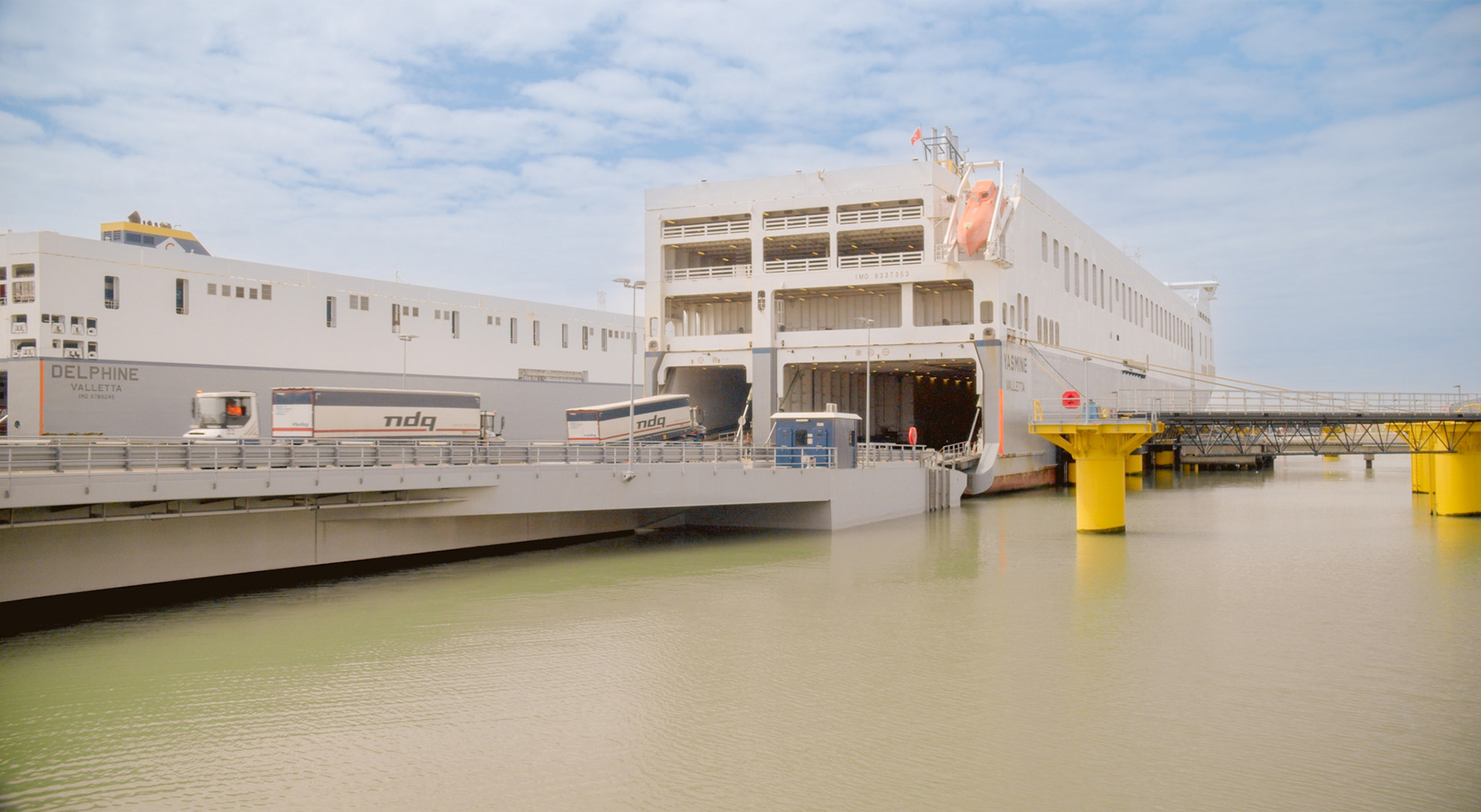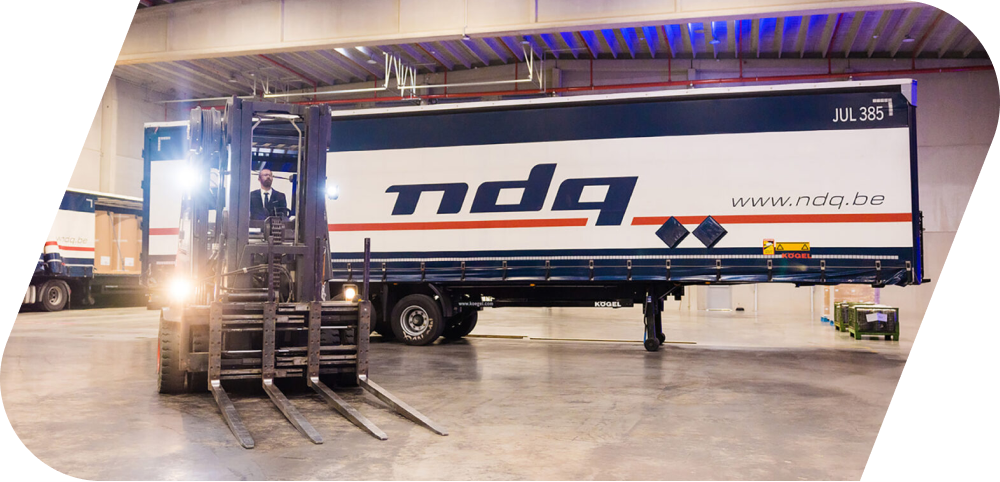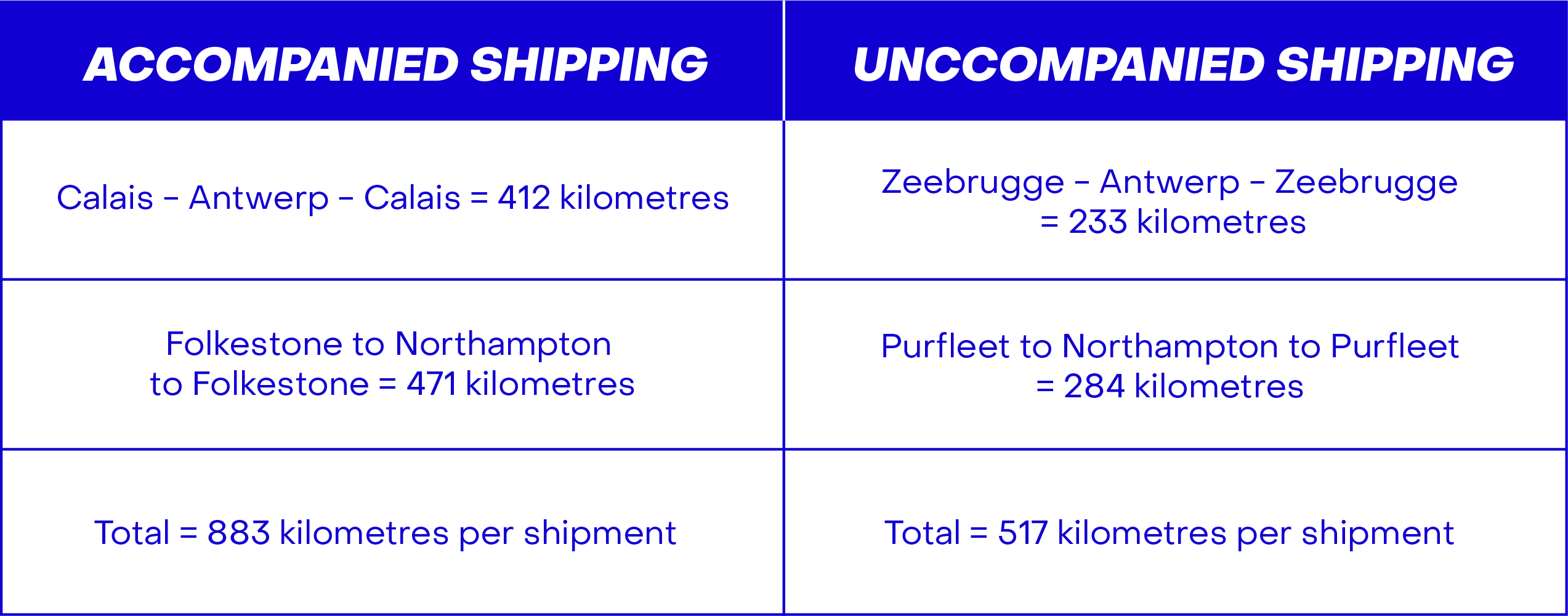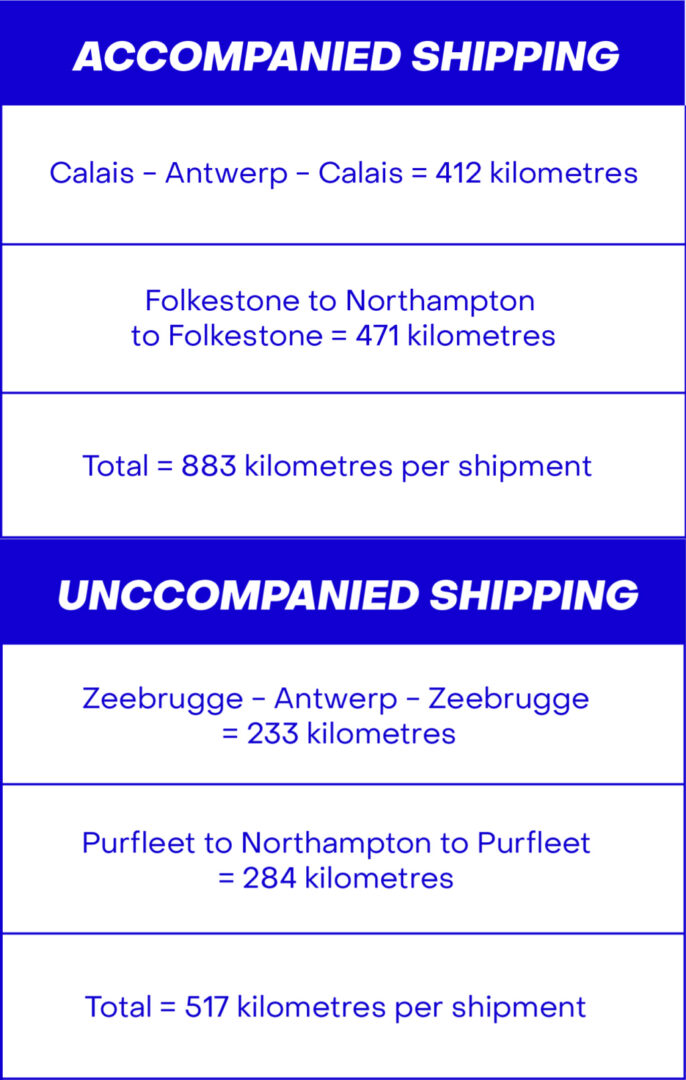WHAT ADVANTAGES DOES UNACCOMPANIED
SHIPPING HAVE OVER THE ACCOMPANIED OPTION?

HOW DOES UNACCOMPANIED SHIPPING DIFFER FROM THE ACCOMPANIED ALTERNATIVE? AND WHAT ARE THE BENEFITS OF THIS APPROACH TO EXPORT YOUR GOODS TO THE UK? FIND OUT THE POTENTIAL VALUE OF UNACCOMPANIED SHIPPING FOR YOUR BUSINESS, USING REAL-LIFE EXAMPLES.
In the case of unaccompanied shipping, a loaded trailer is disconnected from its truck and shipped solo by a RORO ferry service. When a loaded trailer is shipped accompanied, it remains attached to its truck.
An example to illustrate the difference: company X orders a tautliner to pick up goods in Ghent on Monday and ship them to Leeds, the United Kingdom, where they should arrive on Wednesday morning.
In the scenario of accompanied transport, a driver loads the goods onto a trailer in Ghent and heads to Calais or Coquelles in northern France. After crossing the English Channel by ferry or LeShuttle (formerly known as Eurotunnel Le Shuttle), he arrives in Dover or Folkestone in the UK and travels up to Leeds. After unloading the trailer, the driver takes the same route back.
In an unaccompanied shipping scenario, a driver loads the goods in Ghent, then drops off the trailer at the secured parking lot of a RORO shipping agent in Zeebrugge. In this example, it is shipped solo to the port of Hull, which is the one closest to the final destination. A UK carrier or haulier is assigned to pick up the loaded trailer at the port and deliver it to Leeds. After the trailer has been offloaded, the driver drops it off at the port of Hull, where it is shipped unaccompanied to the port of Zeebrugge.

THE BENEFITS OF UNACCOMPANIED SHIPPING
1. More sustainable
As loaded trailers are sent to the port closest to their final destination, unaccompanied shipping significantly reduces the amount of kilometres driven. Even if the distance between your pick-up location and the port of Zeebrugge is larger than the distance to the port of Calais, this is usually compensated by the kilometres you save on the UK mainland.
Fewer kilometres travelled means less truck emissions of greenhouse gases that
contribute to climate change, the most common of which is CO2.
Let’s look at an example: a multinational based in the Belgian province of Antwerp needs 3 FTL (Full Truck Load) shipments to Northampton in the UK, every day of the year.
When shipping is accompanied, goods are picked up from the factory, driven to the port of Calais, and then transported across the English Channel via LeShuttle. After the driver arrives in Folkestone, he drives to Northampton to unload the trailer. Afterwards, he follows the same route to return to the port of Folkestone.
In the case of unaccompanied shipping, a driver collects the goods at the factory and drops off the loaded trailer at the RORO terminal in Zeebrugge. It is shipped unaccompanied to Purfleet, the port that is closest to the final destination. A UK carrier drives the loaded trailer to Northampton and returns it to Purfleet after unloading.
These journeys are measured in kilometres as follows:


By shipping unaccompanied, this multinational reduces the number of kilometres driven by 366 per FTL shipment. Multiply this by 3 to equal 3 shipments a day, or roughly 720 shipments annually. The result: a 263,000 kilometres reduction in annual transportation costs.
2. Less traffic congestion
The shorter driving distances that are related to unaccompanied shipping translate to less traffic congestion. This widespread issue has a harmful impact on the environment, since it increases fuel consumption and CO2 emissions.
In addition, it negatively affects society, since it raises stress levels and the likelihood of accidents, and pollutes the air, which could lead to health conditions. The economy is also impacted: traffic congestion increases the need for road maintenance and decreases productivity because of lost time.
“IN THE CASE OF UNACCOMPANIED SHIPPING, A LOADED TRAILER IS DISCONNECTED FROM ITS TRUCK AND SHIPPED SOLO BY A RORO FERRY SERVICE. WHEN A LOADED TRAILER IS SHIPPED ACCOMPANIED, IT REMAINS ATTACHED TO ITS TRUCK.”
3. More flexibility
Unaccompanied shipping provides more route customisation options. When shipping is accompanied, loaded trailers usually depart from northern France on a ferry or LeShuttle and travel down to the south coast of the UK to Dover or Folkestone. As a result, travelling to a final destination in the north takes significantly more time and distance. Unaccompanied shipping, however, permits loaded trailers to be shipped to the port that is most convenient for their final destination.
Furthermore, scheduling is more adaptable. Let’s revisit the first example, which involved the delivery of a loaded trailer from Ghent to Leeds. Pick-up took place on Monday, with offloading scheduled for Wednesday morning. Suppose the customer makes the last-minute decision to move the initial unloading slot to Thursday afternoon.
In the scenario of accompanied shipping, the driver loaded the trailer on Monday, crossed the English Channel and arrived in Folkestone on Tuesday, and prepared for delivery in Leeds on Wednesday morning. Because the unloading slot changed, he now has to wait an additional day.
Yet, in the case of unaccompanied shipping, the trailer remains at the terminal upon arrival at the port of Hull on Tuesday, where it is stored in a secure parking area. Depending on the customer’s needs, a UK haulier is scheduled to transport the trailer to its final destination.
“AS LOADED TRAILERS ARE SENT TO THE PORT CLOSEST TO THEIR FINAL DESTINATION, UNACCOMPANIED SHIPPING SIGNIFICANTLY REDUCES THE AMOUNT OF KILOMETRES DRIVEN.”
4. More cost efficient
The option of unaccompanied shipping is a cost-effective option because it requires fewer kilometres – and shorter truck trips are naturally less expensive.
Due to flexible planning, the approach also eliminates wait times and expenses. Let’s revisit the situation where the Wednesday morning offloading slot was altered to Thursday afternoon. When the shipment is accompanied, the driver must be paid an additional day’s wages. If you choose unaccompanied shipping, however, you avoid these costs.
Want to know more about unaccompanied shipping, the most efficient and sustainable method of transporting your goods to and from the UK?

